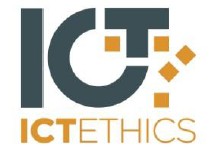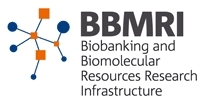Taking Europe into the 21st century
-
Summary
As the argument goes, Europe is not the same place it was 50 years ago, and nor is the rest of the world. Europe is facing demographic shifts, changing economies, globalisation, security threats and climate change. To meet these challenges in the 21st century, the member states are partners to strategic planning, common values and objectives, drawing on guidelines set forth in the Treaty of Lisbon. This consolidated treaty - the Treaty of EU and the Treaty of the Functioning of the EU (with the Charter of Fundamental Rights) - holds the EU's founding values of respect for human dignity, freedom, democracy, equality, the rule of law, and respect for human rights. Europe is an "area of freedom, security and justice", and the treaty promotes solidarity, economic, social and territorial cohesion, and a combat against social exclusion and discrimination.
Accordingly, European states are committed to sustainable development, aiming at balanced economic growth, highly competitive "social market" economy, high employment and social progress--as outlined in the Commissions' communication, Europe 2020: a strategy for smart, sustainable and inclusive growth. They are also committed to the Innovation Union, putting research, development and innovation at the heart of addressing the societal challenges of the day, as outlined in the Horizon 2020 Programme
The material we discuss here represents key areas of concern in these developments, from the late 2000s until the launch of Horizon 2020. It represents the pivotal role ICTs have in the future of healthcare and security, the emphasis on key-enabling technologies and the strategic planning of the future through integrated innovation and industrial policies. These issues have all been part of the research focus of the EC-funded projects at Cesagen.
-
Strategic planning with new and emerging ICTs
The economic realities of late have not discouraged European leaders from anticipating and planning ahead a stronger, safer and more competitive Europe. Scientific and technological advances have a key role to play in strategic planning for the future: to revolutionize health care, employment, competitiveness, security and social inclusion. It remains to be seen, however, what such advances can actually deliver. But, the prominence given to new and emerging ICTs is not new.
1) ISTAG: the Information Society Technologies Advisory Group was commissioned in 1999 to develop a research agenda for FP6 which would give electronics engineering in Europe a competitive edge. The target was set on creating an Ambient Intelligence infrastructure by 2010, to enable the development of "smart everything": cars, homes, transport systems, work supports, commerce, education, health and environmental monitoring, entertainment, and more.
2) The European eHealth Action Plan came first into effect in 2004, to encourage EU-wide development and deployment of electronic health records and information networks, telemedicine, personal wearable and portable sensory/communication systems, and eHealth service portals. It was revised in 2012 to adjust to new priorities and challenges, e.g., in the personalization of health care, in more self care and mobile care. See the Green Paper on mHealth.
3) EUROP: the European Robotics Platform developed a strategic research agenda in 2009, Robotic Visions to 2020 and beyond. This agenda is to a large extent aiming to integrate robotics into everyday private, public and occupational lives. See also ICT Research: The policy perspective on European robots and the manifesto of the Robot Companions for Citizens (RCC) initiative, that competed for FET Flagship status up until 2013.
4) Biometry: a "process" towards strengthened freedom, security and justice? Sophisticated security, detection and identification technologies have been part and parcel of the "securitization agenda" that gradually took hold during the 2000s with major impact on strategic developments in European border control, cross-border policing and other management of mobility risks. Governing these developments has been focussed largely on striking a balance between securing the freedoms of individuals and restricting their freedoms to provide adequate security. This publicly stated priority has overshadowed other issues that can and should be raised about the deployment of biometry.
This list is not comprehensive, but gives examples of strategies and objectives, aiming at a "stronger, safer and more competitive Europe" on the cutting edge of progress. See also the Digital Agenda for Europe the Horizon 2020 strategy for Science with and for Society and a report from a high-level expert group on key-enabling technologies.
-
Cesagen's involvement
Members of Cesagen have been interested mainly in the economic, social and ethical implications of new and emerging ICTs, ie., their potential to radically reconfigure human-world relationships, society at large or how we interact with technologies on a day-to-day basis.
Cesagen has also been a contributor to the work of the European Network and Information Security Agency (ENISA), and the Computers, Privacy & Data Protection (CPDP) conferences in Brussels.













